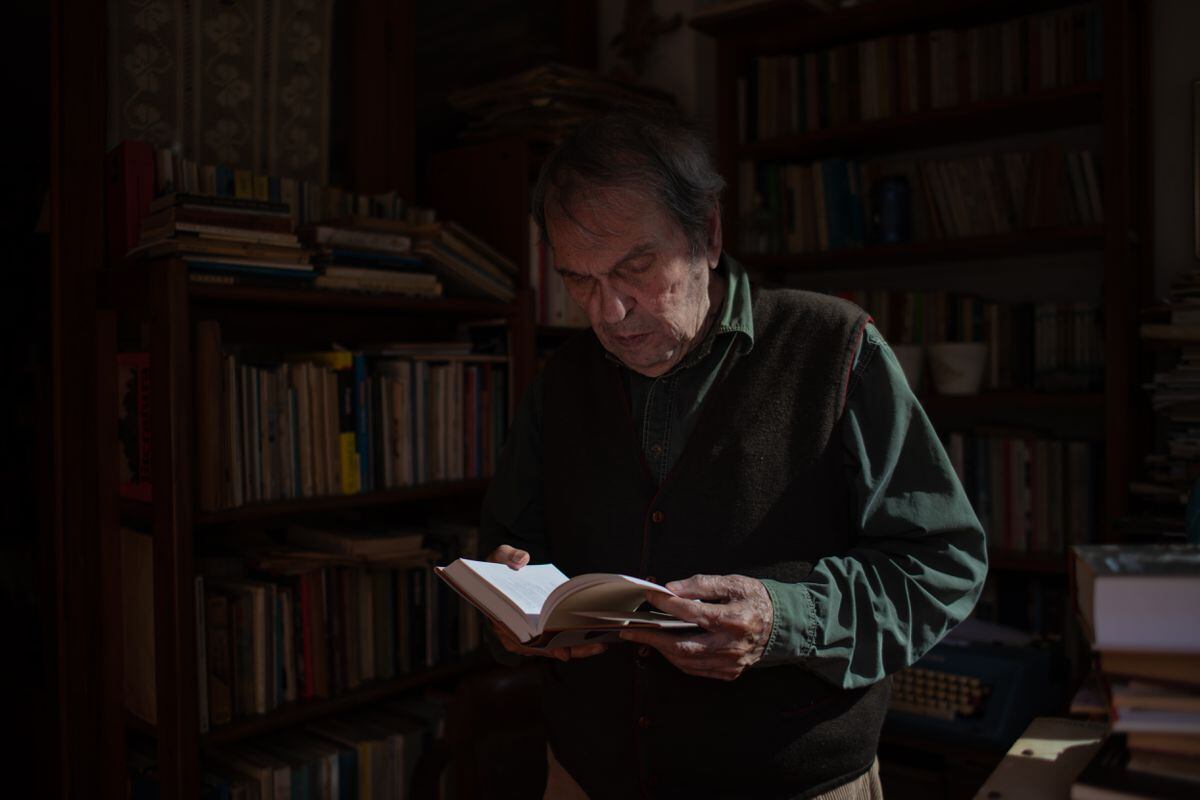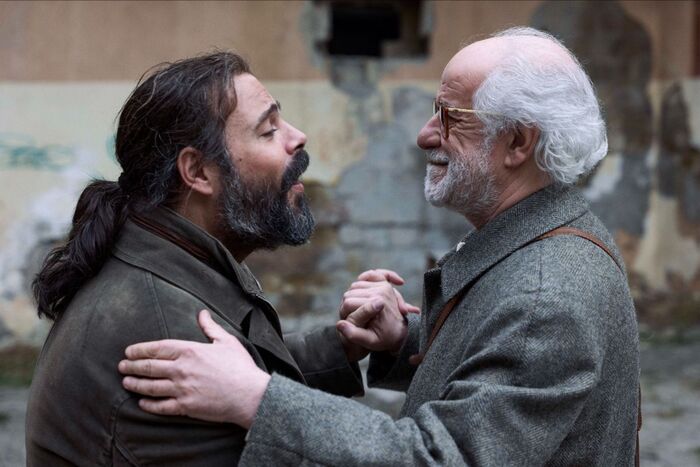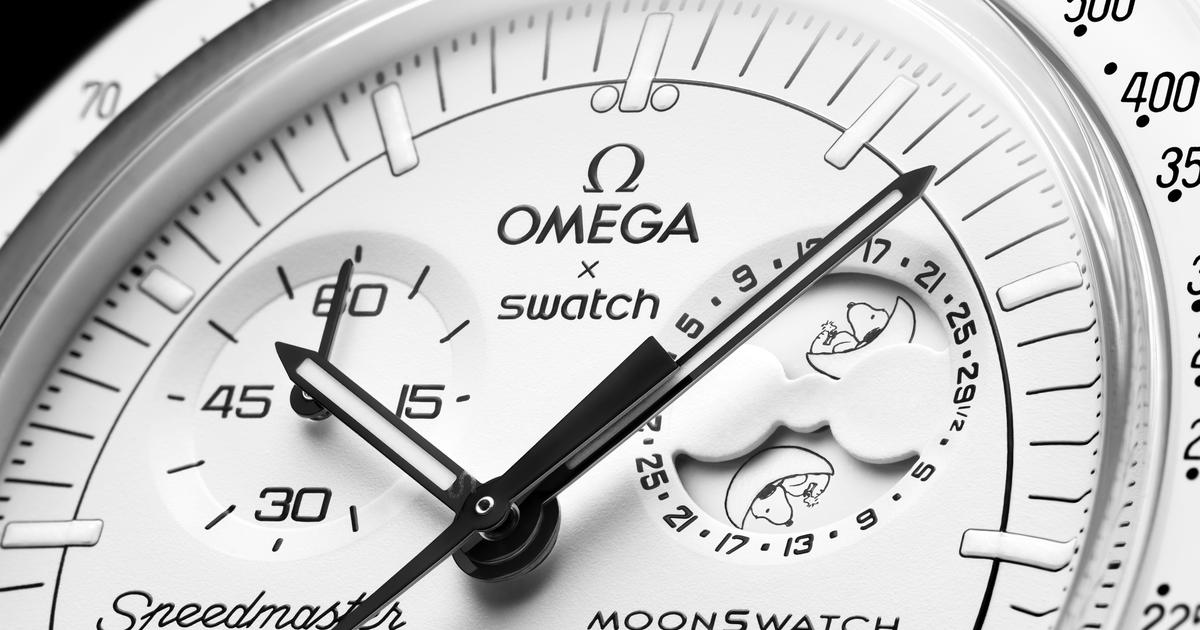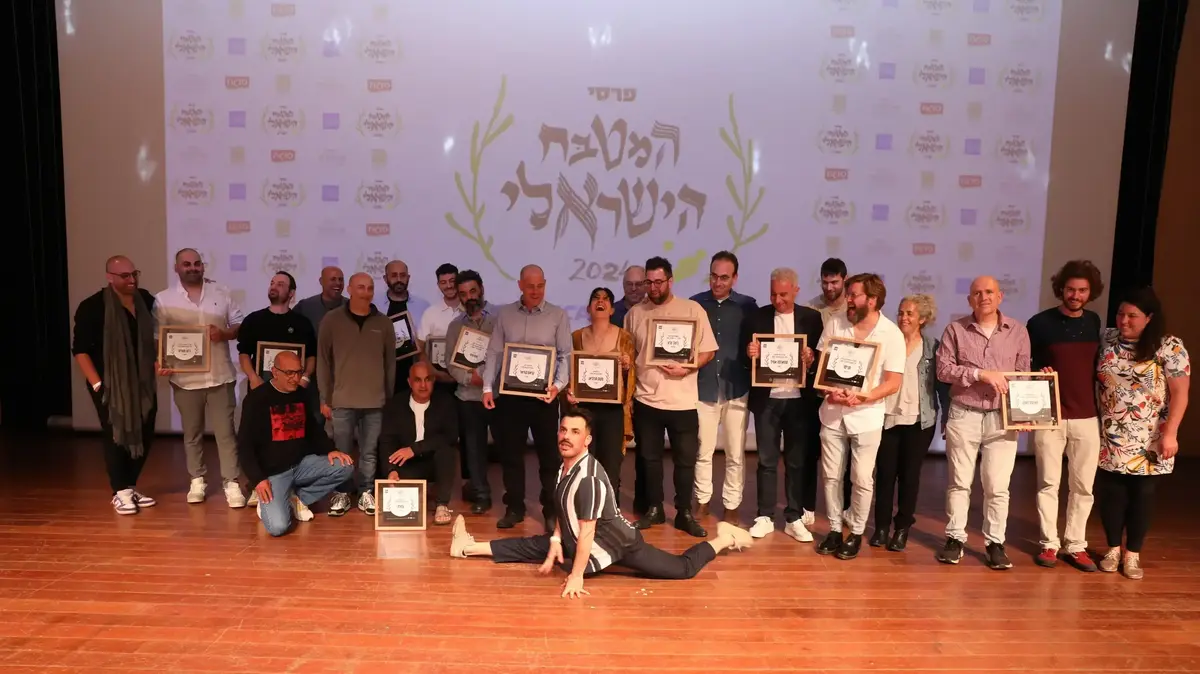"Twice we toured all of Spain," says Rafael Cadenas.
He forms the plural with Milena González, his deceased wife, to whom he owes his trips or almost everything beyond La Boyera, an apartment complex in the southeast of Caracas, where he has lived for decades, goes to the supermarket and bought newspapers when they were still in circulation.
Spain is a recurring memory and more so since it was learned that the Venezuelan poet will receive the Cervantes Prize at the ceremony on April 23, 2023. In several meetings in which he has participated in recent weeks, he has thanked that country —which in 2018 also He was awarded the Reina Sofía Award for Ibero-American Poetry—and to Mexico—where he obtained the Guadalajara International Book Fair diploma in 2009—the prizes he has been awarded and from which he has been able to live.
Rafael Cadenas' studio, in his Caracas apartment. Gaby Oráa
At the appointment at his house, he recalls the stays at the Madrid Student Residence during those trips.
“There were the poets of 27 ″, he says, while he sews the conversation with silences.
"When we stayed there I played with the idea that in the room they gave us, García Lorca or Jorge Guillén or any other of the generation of '27 had surely slept."
Ángel González, Luis García Montero and Fernando Savater are part of the friendships of that time.
Another memory appears and stops.
“When we went, Luis Muñoz, a friend of Rafael Alberti, the only one of that generation that I knew, was almost always in charge of the activity.
He came once and a friend commissioned me to welcome him.
Later Alberti came to Venezuela several times, because he had Spanish friends.
The exiles, as we called them”.
He pauses and he laments the failed attempt by Mariano Picón Salas to bring Pedro Salinas to Caracas.
“It would have been important,” he says.
“García Lorca called Pedro Salinas's poems
proesías
, because he had broken with rhyme.
I am also a great lover of good prose”.
Gaby Oráa
Cadenas, with a complete work published by Pre-Textos and an anthology by Visor, appears this week on the lists of best-selling poetry books in Spain.
The effect of Cervantes has also had an impact on the fact that his home phone is ringing a lot.
Cadenas' stepson, Silvio Orta, has had to juggle the schedule of commitments and invitations that the poet born on April 8, 1930 in the city of Barquisimeto has received, where at some point he tried to play baseball and became an amateur. .
“I know that an award in this category is very impressive, but I'm still the same,” he told friends at the presentation in Caracas of a new anthology published last month by an Ecuadorian publisher.
And the friends answered him with a laugh between applause.
“When I was young and met a writer or a poet, I felt very shy around him.
That's how it is.
Many young people approach me with that attitude that they are before a teacher.
And I always say that they call me a teacher, but deep down I don't know anything”, he deepens from a sofa in his house, in front of a half-length mannequin of a woman that has colonized a corner of the room along with countless other dissimilar ones. objects collected by his wife.
Think, speak and act in the same way
For the poet Carmen Verde Arocha, Cadenas is an ancestor of contemporary Venezuelan poetry.
“It is a unit, it did not indulge in splitting up.
Think, act and speak in the same way.
We rarely find that in a poet.
We are privileged to have him."
Yolanda Pantin, winner of the 2020 Federico García Lorca International Poetry Prize, thinks with anguish at the moment when they no longer have it: "I am aware of the responsibility that carrying their legacy means for those of us who come far behind as part of that current that It is Venezuelan poetry.
I have always been terrified and aware of what Rafael's absence could mean for us.
We would be completely orphaned."
For Alfredo Chacón, a poet also born in the 1930s, Cadenas has the resonance of a very distant company.
“Every time something happens to Rafael that brings him closer to people, I feel four times rewarded.
By a kind of fortune, the greatness of Raphael's poetic word is balanced by its transparency.
It is a word: accessible”, concludes Chacón.
A manuscript by Rafael Cárdenas.Gaby Oráa
Arturo Gutiérrez Plaza has just finished the prologue to the anthology that brought the friends together at El Buscón, one of his usual bookstores, where he also sells the books he has already used, of which few remain open in Caracas.
The book was titled
Las paces
, for a poem published in 2012 in which Cadenas, after a lifetime of struggles, finally says: "Poem / take me away from you."
Gutiérrez Plaza, a visiting professor at the University of Oklahoma, points out by phone that Cadenas's work is built with great honesty, which makes it singular and atypical.
“There is no artifice or rhetoric because he fights against it all the time.
Although her vision goes beyond the Spanish tradition, it is universal and can be translated into any language, as it is free from localisms and its circumstances.
It is very Venezuelan and very universal.
You cannot read Ramón Palomares except from the Andes.
You read Cadenas like Rilke or Pessoa”.
what is to come
Among the multitude of objects and books that fill the house of the award-winning poet, Jaqueline Díaz has been with him for a year.
She is the one who prepares banana milkshakes for him, shaves him and transcribes unpublished poems for him.
Wearing her nurse's uniform, the woman over 40, an administrator by profession, she admits that the poet corrects her generously and that she has ever asked her opinion on a word.
"Mr. Rafael, you are the one who knows letters," she replied.
On her cell phone, Jaqueline keeps photos of Cadenas pushing a supermarket cart, before and after cutting her hair and in any routine at 92, which she documents and shares with Paula Cadenas, the daughter of Rafael and Milena who lives with her granddaughters. in Montpellier, France, to whom the poet hopes to see if health allows him to travel to receive the Cervantes,
something you don't take for granted.
“You don't know what's to come, you know the present and not much either, because sometimes it surprises.
In general, the past weighs heavily on one.
In the active person, the past weighs less.
The impossibility of thinking about the future leads him to talk about quantum physics, about which he has conversations on the phone with his friends.
“It's a revolution, but as always, people don't realize it,” he says, and pauses.
“It is the scientists who lead to what (Ludwig) Wittgenstein calls the mystical, which does not mean mystical in the traditional sense.
The mystical arises when thought sees its limits and that idea is summed up in that the world is, because it might not be.
With friends I usually talk about these issues ”, he comments.
“Science has made the mystery current.
The world is already cosmopolitan, but everything that opposes cosmopolitanism continues: nationalisms, ideologies, religions.
All of this is what prevents there from being unity among human beings.
They are divisive factors and they still have too much strength.
And when one talks about cosmopolitanism, many people believe that it has to do with knowing the world.
You can be cosmopolitan without leaving the village where you live and the most important case in this regard is that of (Johann Wolfang von) Goethe”.
The poet Rafael Cadenas, in his apartment in Caracas. Gaby Oráa
Cadenas is suffering from some vertigo and imbalance, but he has not wanted to use a cane and, therefore, most of the time he is at home.
"I'm locked up," she replies emphatically.
“When I go out, I do it with Silvio or with a friend so that if I have any imbalance they can help me.
I didn't want to use a cane, but I'm thinking of going to see some”.
"Rafael has lost his treble," explains his son Silvio.
He only listens to deep voices.
Because of his hearing problem, he uses a device that he sometimes manages to control by pressing his fingers on his ears.
"It's unfortunate," says the poet and anticipates a smile.
“Because I want to hear women above all.
And to children, because children are wise”.
But when he talks on the phone, he clarifies, he does listen well.
A fortune in these days of many calls.
The language of totalitarianism
Totalitarianism has been a recurring warning in their conversations in recent years.
He worries about his progress everywhere, "sometimes in a democratic guise, sometimes in a frank way," and what he does with words.
In his shift notebook, where he writes and pastes fragments of texts that interest him, he has written: "Heads are formed by language and spirits can be re-educated starting with it."
It is a precise idea that comes from Rousseau and Andrés Bello and that connects with a quote from Orwell that he read that Thursday afternoon in Caracas when it rained again: “The current political chaos is related to the decadence of language and we could get some improvement if we started with the verbal”.
The stories of Ossip Mandelstam and Anna Atjmatova, the Russian poets who were victims of Stalin, are in his conversations and poems.
A few years ago, Rafael Cadenas had a more belligerent voice on Venezuela and its becoming authoritarian.
He now prefers not to comment with his words.
He uses those of Eugenio Montejo, another main poet of Venezuela: "That agrarian country that does not finish burying (Juan Vicente) Gómez."
And he comments: "That is the fiercest of the dictators we have had and with that verse everything is said."
Subscribe to continue reading
Read without limits
Keep reading
I'm already a subscriber









